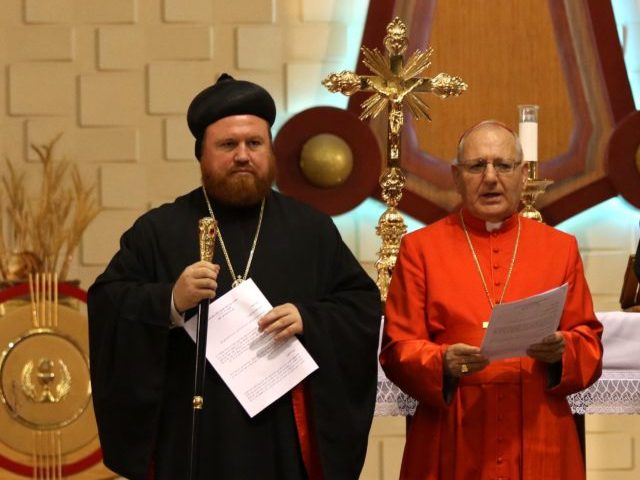Cardinal Louis Raphael Sako has accused powerful political parties in Iraq of “stealing” parliamentary seats that had been reserved for Christians, as an example of ongoing Christian persecution in the country.
Iraq’s national system guarantees a certain number of seats to different components of the population to insure that their concerns are represented in government, especially minorities like the country’s Christians.
“According to the ‘quota’ of the Iraqi Parliament, five representatives of Christian component should be elected,” the Chaldean Patriarch said in an essay published Thursday. “However, the major ‘political parties’ intervene in the process by supporting certain candidates for their own benefit, ‘stealing’ Christians’ right in having this privilege, since the reality, showed that such ‘elected Parliament members’ do not care about the Christian component, and have done nothing in terms of providing services to them.”
“The same thing applies to the election in municipal and administrative councils!” Cardinal Sako said.
Parliamentary injustice was not the only example of ongoing Christian persecution put forward by the patriarch, who wondered aloud why Christians in Iraq must be tried according to Sharia law.
“Christians and other religious minorities do not have their own ‘special’ courts, so they have to be subjugated to Islamic court, in terms of spiritual, religious matters, marriages, inheritance etc,” Cardinal Sako said. “We wonder, why don’t we apply a civil law for all Iraqis? as is the case in most countries of the world.”
Sako said that such unjust structures are contributing to the exodus of Christians from Iraq, which will have long-term deleterious effects on the nation. The main reason behind the migration of Iraqi Christians and other minorities, he said, is “constant discrimination” and an “uncertain future.”
“Christians and other minorities played a significant role in enriching Iraq’s cultural, social and economic diversity, making valuable contributions to education, health, public administration and social services,” the cardinal said. “This diversity created a beautiful mosaic of ethnic, religious, cultural, linguistic and traditional components.”
In the 1970s, Christians made up about 5 percent of Iraq’s population, he added, but dropped down to less than 2 percent after being targeted by Islamist terrorists.
At present, discrimination against Christians continues in “daily practices including education, employment and social life, particularly against young people with higher education ambition, and employability,” he said.
Among the abuses, the cardinal chronicled cases of eminently qualified Christians who have been turned away from important academic and political positions simply because they were Christians.
Moreover, a law passed by the Council of Ministers in 2018 mandating the hiring of Christians in public and administrative bodies to replace Christian employees or officials who retire or leave their posts has not yet been implemented, he added.
Iraqi laws ought to guarantee Christians and other religious minorities “full citizenship and freedom in practicing their faiths explicitly,” Sako said.
They should, moreover, “preserve their heritage, archaeological and historical monuments as an integral part of Iraqi civilization, in order to enable them to continue their lives with dignity,” he said.
Follow Thomas D. Williams on Twitter Follow @tdwilliamsrome

COMMENTS
Please let us know if you're having issues with commenting.